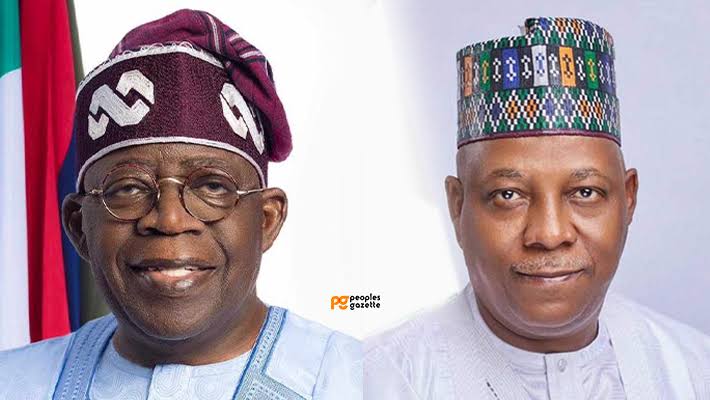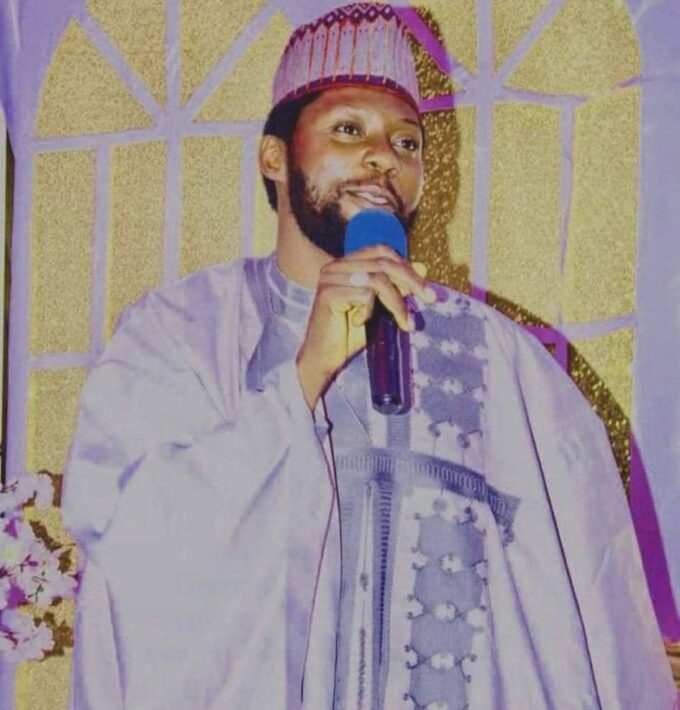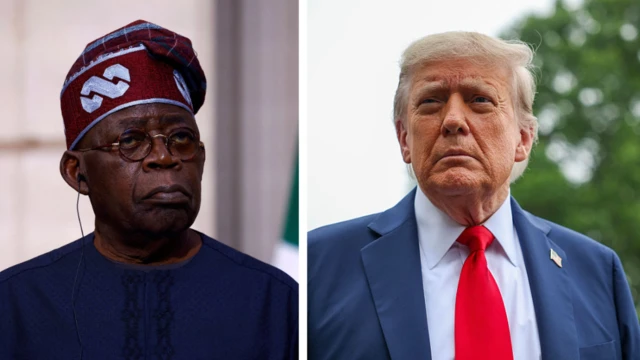
Since the End of 2023: A Season of Political Earthquakes
Since the dust settled after the 2023 general elections and the President Tinubu assumed office, Nigeria’s political landscape has been anything but calm. Instead of a smooth takeoff, the months that followed have been filled with behind-the-scenes power struggles, shifting alliances, and rising internal pressure within the ruling party. From settling old scores to rewarding loyalists and reshuffling power blocs, the presidency has been navigating treacherous waters.
Some of his appointments have been praised, but others have stirred controversy especially among northern political heavyweights who feel increasingly sidelined. At the heart of it all is an uneasy balancing act between governance and political survival.
The El-Rufai Saga: When the Lion Couldn’t Roar
One of the most dramatic episodes in Nigeria’s unfolding political narrative is the case of Mallam Nasir El-Rufai, the former governor of Kaduna State. Once revered as a political lion within the APC, El-Rufai’s journey to a cabinet seat in Tinubu’s administration ended not with applause but with rejection.
Though El-Rufai publicly claimed he had no interest in a ministerial role, insiders reported that he had lobbied intensely behind the scenes reportedly eyeing the Ministry of Power and even assembling a technical team ahead of his expected appointment.
However, during the Senate screening on August 8, 2023, El-Rufai’s confirmation hit a major roadblock. Senator Sunday Karimi of Kogi West stood before the chamber shortly after El-Rufai’s presentation and raised a brown envelope, saying:
The petition, reportedly related to insecurity in Southern Kaduna, was handed over to Deputy Senate President Jibrin Barau.
Senate President Godswill Akpabio intervened, stating: “This is not the place to consider petitions; we will sit with the petitions later and refer them to relevant authorities.”
Yet behind the scenes, more serious concerns loomed. According to multiple reports, including sources quoted in Daily Trust and Premium Times, El-Rufai failed to pass security clearance, allegedly due to adverse reports from both domestic and international intelligence agencies.
In the end, his name was dropped from the final list of confirmed ministers. For a man once considered one of Tinubu’s closest and most vocal allies, it was a stunning fall from grace. As the elders say, “When the drumbeat changes, the dancer must change his steps.” El-Rufai couldn’t or wouldn’t and the rhythm left him behind.
But this was just the beginning…
2027 Begins Early: A Shift from Governance to Succession
Barely halfway into Tinubu’s first term, national attention is already drifting from governance to 2027. What should be a season for implementing policy has, instead, become a race to secure political positions. In the midst of this realignment, one question continues to dominate both open discussions and hushed conversations in political circles: Will Vice President Kashim Shettima still be on the ticket in 2027?
This is not just a rumour. It’s fast becoming one of the biggest political talking points today. From Abuja to Kano, Maiduguri to Minna, people are beginning to ask: is Shettima’s place still safe?
The tension is real. Inside the APC, there are signs that some powerful groups, especially from the North-West and North-Central, want a change. They believe it’s time for another region to produce the Vice President either to reward loyalty or to balance the religious and political equation ahead of the next election.
The Muslim–Muslim Ticket: A Debate That Never Ended
Shettima’s emergence as Tinubu’s running mate in 2023, a fellow Muslim from the North-East sparked one of the fiercest debates of the election season. The “Muslim–Muslim ticket” provoked outrage from Christian leaders, civil society, and even international observers. Many feared it would deepen Nigeria’s religious divide.
At the time, the Christian Association of Nigeria (CAN) strongly opposed the idea. In a letter to the Chairman of All Political Parties in Nigeria, obtained by The Star on June 14, 2020. CAN urged parties to balance their presidential tickets along religious lines to help prevent potential unrest after the 2023 general election.
Despite the outcry, Tinubu doubled down, defending the choice as a matter of competence over creed.
But the issue didn’t fade with the election. Tinubu’s administration has since walked a tightrope trying to avoid appearing religiously lopsided while keeping his trusted circle intact. The result? A cautious governance style marked by carefully balanced appointments, calculated silences, and occasional friction with Christian blocs in the Middle Belt and South. The Gombe Summit Drama: Is the VP on the Chopping Block?
Speculation about Shettima’s future intensified after the dramatic APC North-East zonal meeting held in Gombe on June 15, 2025. The event, intended to show party unity and strength ahead of 2027, did the exact opposite.
During the meeting, North-East APC Zonal Vice-Chairman Mustapha Salihu publicly endorsed President Tinubu for re-election—but noticeably omitted any mention of Vice President Shettima. The omission sparked chaos. Angry delegates from Borno and Yobe shouted “Shettima! Shettima!” and reportedly threw chairs, forcing security to step in. Videos of the incident quickly went viral, highlighting the deep cracks forming within the party’s Northern base.
In a bid to calm the backlash, Salihu appeared that same evening on Channels Television’s Politics Today, where he clarified that party protocol allows only the endorsement of a presidential candidate prior to the primaries.
“In party politics, we have only one ticket at the primary stage… There is no provision that allows for the endorsement of a joint ticket. It is only after the primaries, when a candidate emerges, that he chooses a running mate,” Salihu said.
Despite the explanation, critics say the omission intentional or not has further fueled speculation about internal power tussles and the future of the Tinubu-Shettima ticket ahead of 2027.
Tinubu’s Track Record: A Willingness to Drop Deputies?
Adding to the speculation is Tinubu’s own political history. As Governor of Lagos State, he replaced two deputies during his tenure. Tinubu’s first deputy governor, Kofoworola Bucknor-Akerele, resigned in 2003 after a fallout with him. The disagreements were reportedly over political and administrative issues, leading to a strained relationship. Though circumstances differed, critics point to this pattern as proof that Tinubu isn’t shy about switching deputies when it suits his political strategy.
Femi Pedro, who succeeded Bucknor-Akerele, also had a contentious relationship with Tinubu. Pedro was impeached by the Lagos State House of Assembly in 2007, just before the end of Tinubu’s tenure. The impeachment was linked to allegations of gross misconduct and abuse of office.
In an exclusive interview with Daily Trust, Presidential Spokesman Bayo Onanuga described such parallels as “inapplicable,” insisting that the relationship between President Tinubu and Vice President Shettima remains strong.
“The President will pick his running mate after securing the party’s nomination. That’s the process,” Onanuga said.
“No decision has been made, and the rumours are speculative at best.”
Regional Ambitions: The North’s Internal Contest
While Shettima enjoys strong support in the North-East, particularly in Borno and Yobe States, pressure is mounting from the North-West. This zone, which delivered the highest number of APC votes in 2023, feels overlooked in federal appointments and is now angling for compensation.
Names like Governor Uba Sani (Kaduna), former Governor Abdullaziz Yari (Zamfara), and even National Security Adviser Nuhu Ribadu have been floated in party circles as potential replacements for Shettima, though none have publicly declared interest.
The North-Central too is restless. With no top-tier representation in the current power structure, stakeholders from Kogi, Niger, and Plateau argue that picking a Christian vice-presidential candidate from their zone could solidify Tinubu’s grasp on the Middle Belt and soften the Christian-Muslim tension.
While the Presidency has remained publicly silent on these conversations, it is becoming increasingly clear that regional ambitions, identity politics, and strategic interests are converging around the question of whether or not Vice President Shettima will remain on the ticket.
The Bigger Picture: Loyalty vs. Strategy
Shettima, a former Borno State Governor and influential northern politician, was instrumental in Tinubu’s 2023 victory, especially in helping the APC retain a foothold in the North-East despite initial backlash over the party’s decision to field a Muslim–Muslim ticket. His continued presence on the ticket would reinforce a message of loyalty, consistency, and reward for steadfast political partnership.
However, voices within and outside the APC are urging a more strategic rethink. According to multiple sources familiar with ongoing consultations, some senior party stakeholders believe that adjusting the vice-presidential slot could help soften criticisms of religious insensitivity, strengthen the party’s outreach to Christian communities, and restore regional balance particularly if the candidate is drawn from the North-Central or North-West.
Yet, such a move is not without risk. Dropping Shettima could be interpreted as a betrayal by the North-East, where he remains a popular figure. As noted by several delegates at the June 2025 APC North-East meeting in Gombe, Shettima’s removal may alienate voters in Borno and Yobe and further strain unity within the northern APC bloc.
Political observers warn that dismantling the existing coalition that delivered victory in 2023 could create internal divisions that the opposition may be eager to exploit. Analysts argue that while changing the running mate may offer short-term political advantage, the long-term consequences particularly the potential loss of trust within core support bases could prove damaging.
A Decision That Could Shape 2027 and Beyond
As the race to 2027 begins in earnest, all eyes remain fixed on Aso Rock. Tinubu’s decision whether to retain or replace Kashim Shettima will not only define the APC’s unity but also test the administration’s ability to balance loyalty, performance, and political arithmetic.
For now, Shettima remains in office. But in Nigeria’s high-stakes political theatre, staying in office doesn’t always mean staying in the picture. The next few months will reveal whether this loyalty story ends in affirmation or in another chapter of strategic substitution.
July 16, 2025














This is brilliant . Didn’t know you could write so well. Keep it up Dear . I’m rooting for you.